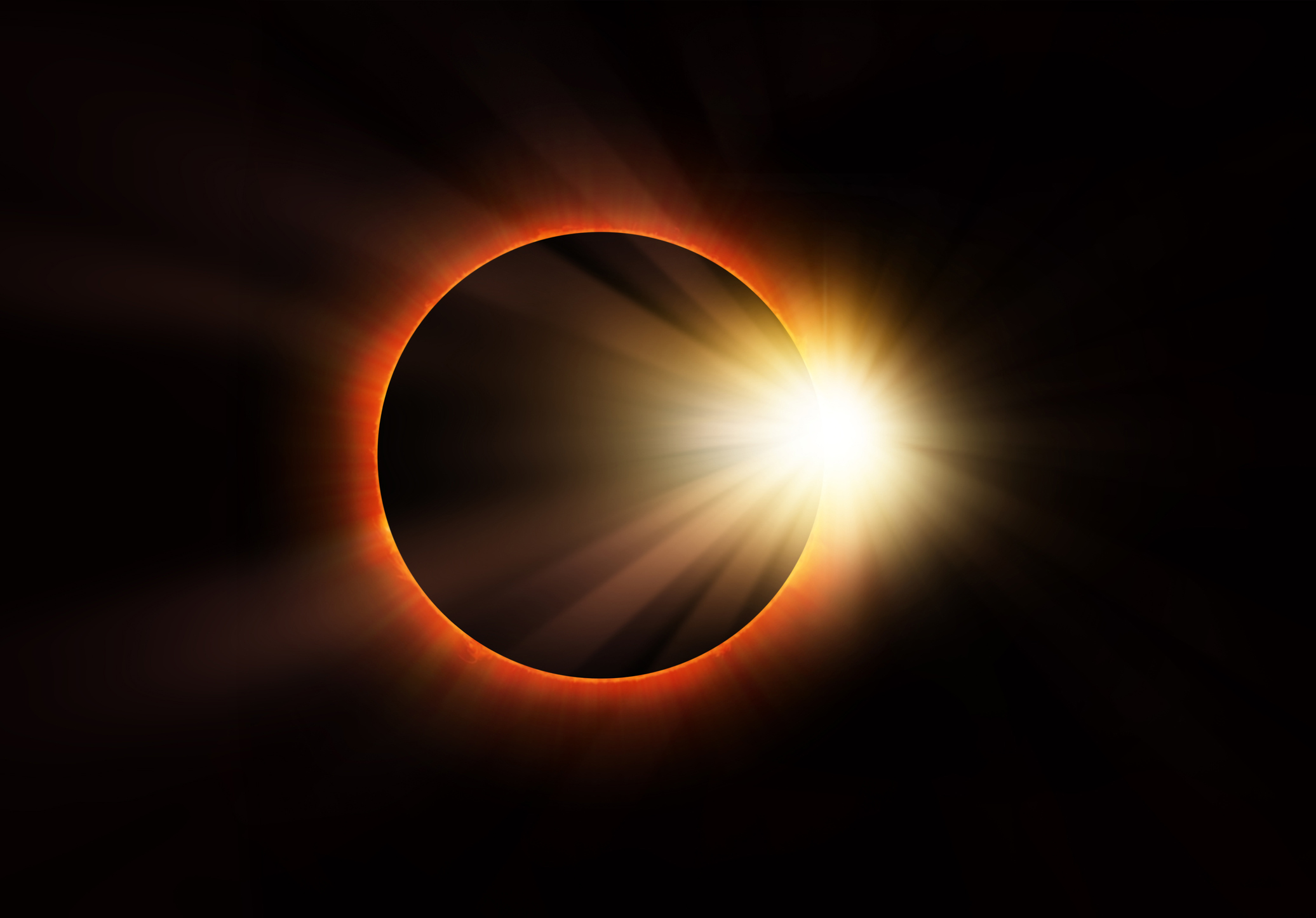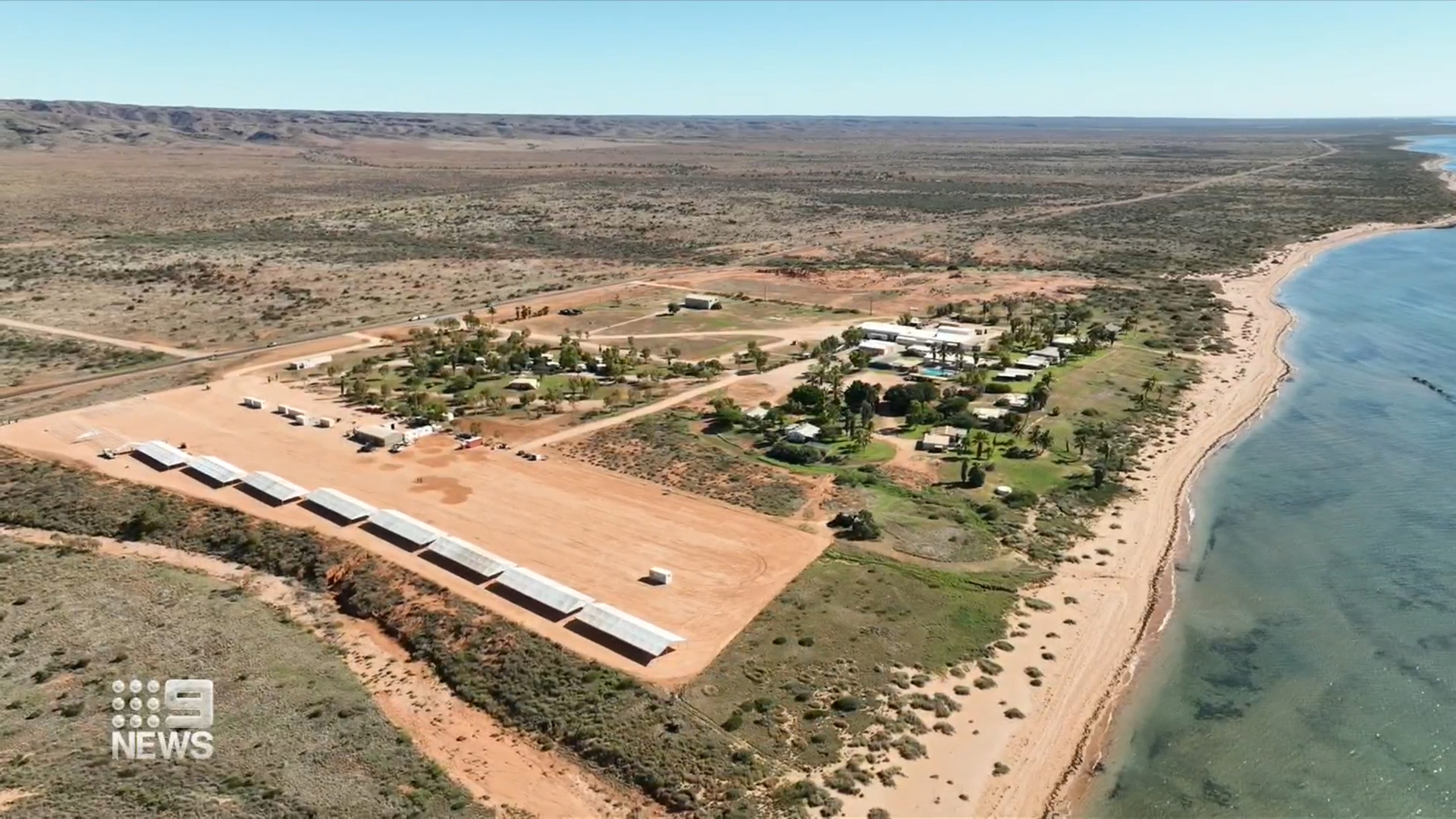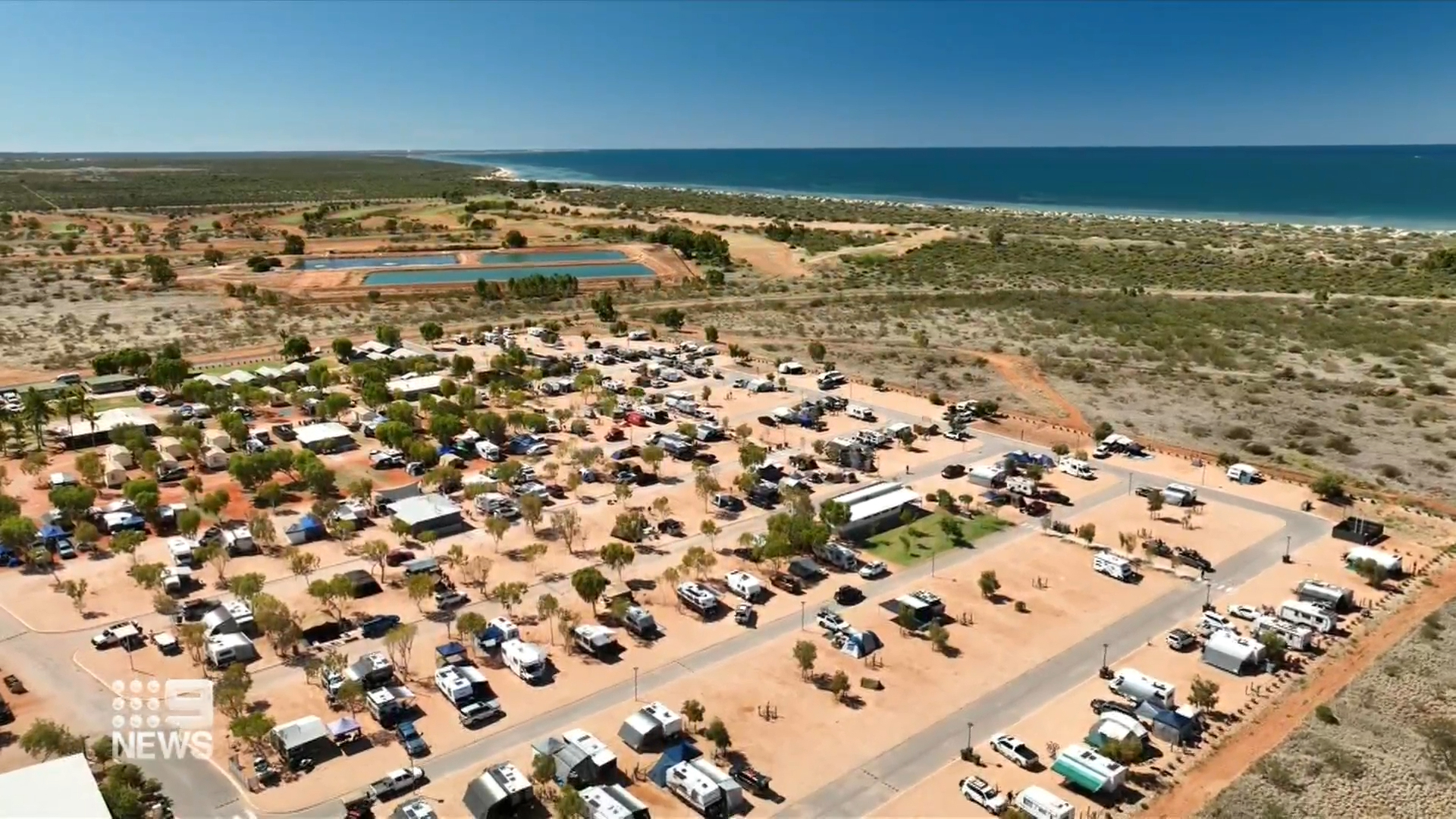Tourists have flooded into a Western Australian town in preparation for the total solar eclipse set to grace the state on Thursday.
The eclipse will reach full totality over Ningaloo, on the west coast about halfway between Perth and Broome, causing tourists to flock to Exmouth Gulf to catch the once-in-a-century sight.
The state government has poured millions into the town to ensure it can sustain the 3000 expected visitors from around the world.
READ MORE: How to see the rare solar eclipse on April 20

"There's been a lot of work put into the management of this event by the state government with over $20 million spent to facilitate the management of this experience," James Archibald from Tourism WA said.
A viewing platform 30 kilometres away from the town in Learmonth has been set up to fit thousands of viewers inside an old Kailis prawn processing factory.
WA's last total solar eclipse was in 1974 but there's usually only one every 100 years or so, or hundreds of years if limited to just one part of state.
Associate Professor Katarina Miljkovic from Curtin University's Space Science and Technology Centre said total eclipses occurred about once every year but were only visible from "a tiny portion on the surface of our planet".
"Given that two-thirds of our surface is covered by oceans, it is very frequent that the path of the totality falls on the oceans, where it is extremely hard to witness the event," she said.
The "rare opportunity" of seeing total coverage has drawn eclipse chasers and astronomers from all over the world to the small town, according to the Department of Jobs, Tourism, Science and Innovation.
READ MORE: Five arrested after police operation in Sydney
As the event inches closer more details are being divulged, including how long the state will be plunged into darkness.
"The closer to the centreline of totality, the more darkness you're gonna get, and at this eclipse we are looking at 62 seconds of darkness at the centreline," Dan Holbrook from the Department of Jobs, Tourism, Science and Innovation said.
Curtin Institute of Radio Astronomy executive director Professor Steve Tingay urged everyone to seek out a total eclipse at some point in their life.
He shared fond memories of seeing the total darkening in Queensland in 2012 and a partial one in Bendigo in 1976.
"I vividly remember being inside at a window during the eclipse, where there was a big old gum tree outside," he said.
"Thousands of the leaves on the tree had little holes in them, which formed thousands of pinhole cameras, and threw thousands of images of the eclipse onto the ground.
"I remember being deeply in awe and I think that was one of my early experiences that drew me to physics and astronomy."
The eclipse will start at 11.27am (1.27pm AEST) on Thursday.
Sign up here to receive our daily newsletters and breaking news alerts, sent straight to your inbox.





